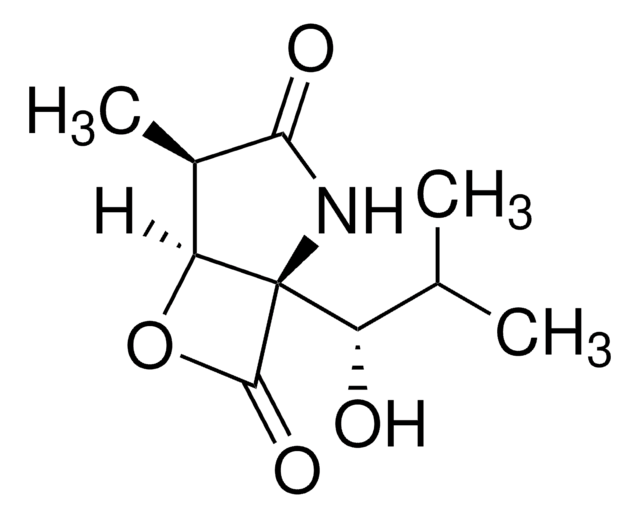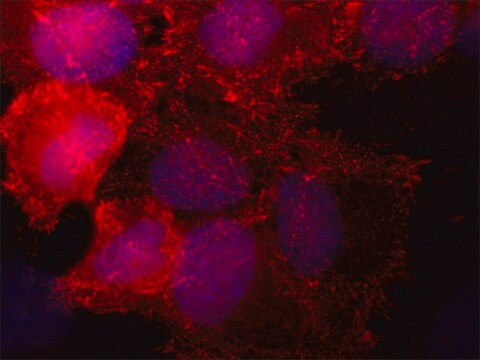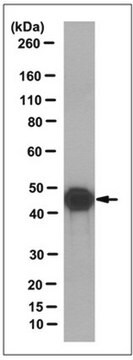P0874
Anti-Potassium Channel KIR6.1 antibody produced in rabbit
affinity isolated antibody, lyophilized powder
Synonym(s):
Anti-KATP Inward Rectifier K+ Channel 4, Anti-KCNJ8
About This Item
Recommended Products
biological source
rabbit
Quality Level
conjugate
unconjugated
antibody form
affinity isolated antibody
antibody product type
primary antibodies
clone
polyclonal
form
lyophilized powder
species reactivity
rat
technique(s)
western blot: 1:200 using rat heart membranes
UniProt accession no.
shipped in
wet ice
storage temp.
−20°C
Gene Information
human ... KCNJ8(3764)
mouse ... Kcnj8(16523)
rat ... Kcnj8(25472)
Specificity
Immunogen
Physical form
Disclaimer
Not finding the right product?
Try our Product Selector Tool.
Storage Class Code
11 - Combustible Solids
WGK
WGK 2
Flash Point(F)
Not applicable
Flash Point(C)
Not applicable
Certificates of Analysis (COA)
Search for Certificates of Analysis (COA) by entering the products Lot/Batch Number. Lot and Batch Numbers can be found on a product’s label following the words ‘Lot’ or ‘Batch’.
Already Own This Product?
Find documentation for the products that you have recently purchased in the Document Library.
Our team of scientists has experience in all areas of research including Life Science, Material Science, Chemical Synthesis, Chromatography, Analytical and many others.
Contact Technical Service








